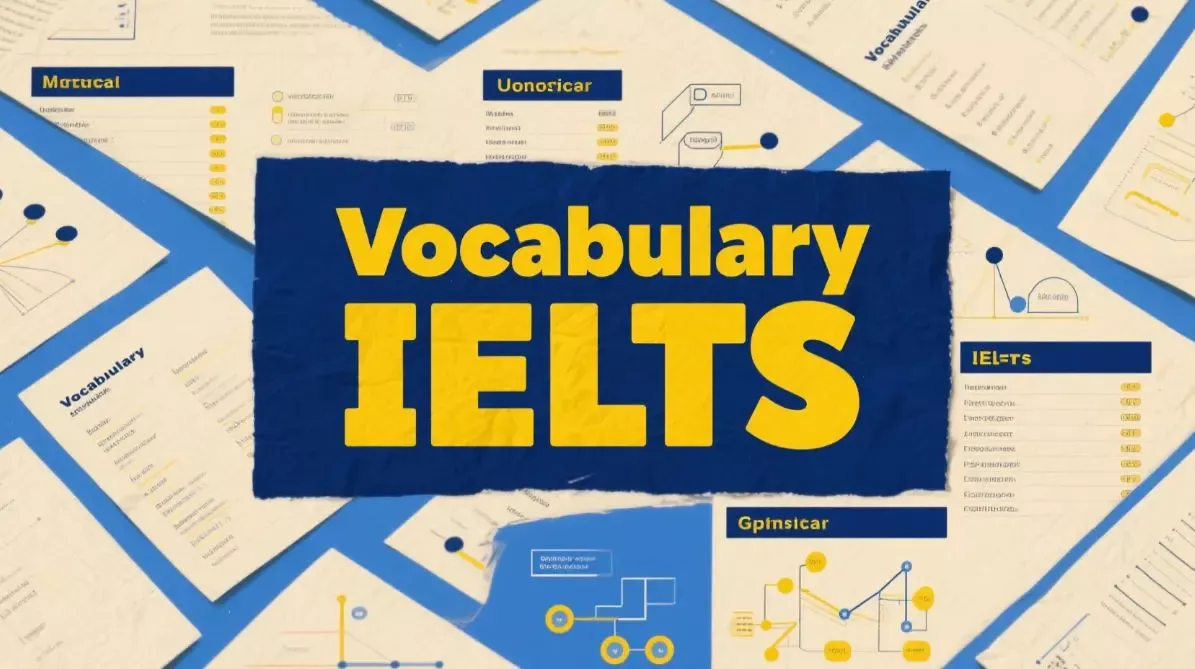IELTS Reading 53: Sustainable living là chủ đề thuộc chuỗi bài luyện tập 11 dạng bài IELTS Reading và các bài tập luyện tập.
Học lại bài cũ: IELTS Reading 52: Issues of social justice.
IELTS Reading: Sustainable living
In recent years, the concept of sustainable living has become a significant part of the global conversation on environmental issues. Sustainable living means making choices that reduce one’s negative impact on the environment by conserving resources, minimizing waste, and promoting practices that protect the planet. This approach not only benefits the environment but also contributes to the health and well-being of individuals and communities.
One essential aspect of sustainable living is reducing waste, particularly plastic waste. Many people now avoid single-use plastics, like straws and bags, in favor of reusable options. This shift has led to a growing demand for eco-friendly products, such as metal straws, cloth bags, and biodegradable packaging materials. By reducing plastic consumption, people help to decrease the amount of waste that ends up in oceans and landfills, where it can harm wildlife and release harmful chemicals into the environment.
Another core component of sustainable living is energy conservation. This can involve simple changes, like turning off lights when they are not in use or using energy-efficient appliances. Some individuals and households go further by installing solar panels to generate renewable energy. These efforts reduce dependency on fossil fuels, which are a major contributor to greenhouse gas emissions and global warming. Governments and businesses are also investing in renewable energy sources, such as wind and solar power, to promote a more sustainable energy infrastructure.
Water conservation is equally important in sustainable living practices. Freshwater resources are limited, yet they are essential for all forms of life. Many people practice water-saving habits, such as taking shorter showers and fixing leaks promptly. Additionally, using drought-resistant plants in landscaping can reduce the need for excessive watering, helping to conserve water in areas where it is scarce.
Sustainable transportation is another area gaining attention. The use of public transportation, biking, and carpooling are becoming more popular as people look for ways to reduce their carbon footprint. Electric vehicles (EVs) are also gaining popularity as they produce zero emissions, making them a cleaner alternative to traditional gasoline-powered cars. Many cities around the world are developing infrastructure to support EVs, including charging stations, which further encourages people to adopt sustainable travel options.
A sustainable diet is also a critical element of sustainable living. The production of food, especially meat and dairy, has a significant environmental impact, due to factors like land use, water consumption, and greenhouse gas emissions. Some individuals choose to adopt a plant-based diet or reduce their meat intake to lessen their impact on the environment. Local food sourcing is another approach, as it reduces the carbon footprint associated with transportation.
The principles of sustainable living extend beyond individual actions to community and governmental initiatives. Many governments promote sustainable practices by offering incentives for renewable energy, enforcing recycling programs, and creating green spaces. Additionally, companies are increasingly adopting sustainable practices in their operations by reducing waste, using recyclable materials, and improving energy efficiency.
In conclusion, sustainable living encompasses various practices aimed at reducing environmental harm and promoting a balanced relationship with the planet. Through simple changes in daily routines, like reducing plastic use, conserving energy, and choosing sustainable food options, individuals and communities can contribute to a more sustainable future. This approach not only supports the planet but also encourages a healthier, more balanced lifestyle. Sustainable living reminds us of the importance of protecting our resources for future generations.
Questions
1. Multiple Choice
- What is one benefit of sustainable living mentioned in the passage?
- A. Increased urbanization
- B. Improved health and well-being
- C. Higher energy costs
- D. Increased use of fossil fuels
- Which of the following is NOT mentioned as an alternative to plastic products?
- A. Cloth bags
- B. Metal straws
- C. Plastic bottles
- D. Biodegradable packaging
2. True/False/Not Given
- Sustainable living mainly focuses on increasing energy consumption.
- Plastic waste reduction is a key component of sustainable living practices.
- The passage claims that all countries support the use of electric vehicles.
3. Yes/No/Not Given
- The author believes that a plant-based diet is essential for sustainable living.
- There is a growing demand for governments to ban single-use plastics completely.
- The passage supports the idea that renewable energy sources are the future of energy.
4. Matching Information
Match each statement to the paragraph that contains the information.
- Details about the impact of plastic waste on the environment.
- A description of how public transportation can support sustainable living.
- Information on how individuals can reduce water usage.
5. Matching Headings
Choose the correct heading for each paragraph from the list below.
- A. Reducing Plastic Waste
- B. Energy Conservation Efforts
- C. Benefits of a Sustainable Diet
- D. Governmental Roles in Promoting Sustainability
6. Matching Sentence Endings
Match the beginning of each sentence with the correct ending.
- Sustainable living encourages people to…
- Many cities are building infrastructure to…
- Some people choose a plant-based diet to…
Endings:
- …reduce their carbon footprint.
- …reduce their plastic consumption.
- …support the use of electric vehicles.
7. Sentence Completion
Complete the following sentences with a word or phrase from the passage.
- Sustainable living includes making choices that reduce __________ on the environment.
- Many people now avoid single-use plastics, opting instead for __________ products.
- A __________ diet helps reduce the environmental impact of food production.
8. Summary Completion
Complete the summary using words from the passage.
Sustainable living involves making daily choices that reduce harm to the __________. People are encouraged to reduce __________ by using reusable items. Adopting energy-efficient __________ and conserving water are also crucial practices.
9. Diagram Label Completion
Use words from the passage to complete the diagram about sustainable living practices.
- __________ conservation
- Reducing __________ waste
- Adopting __________ transportation
10. Short Answer Questions
- What type of diet is considered more sustainable according to the passage?
- Name one action that helps conserve water in sustainable living.
- What is one alternative to using plastic bags?
11. Table/Flowchart/Note Completion
Complete the table with information from the passage.
| Sustainable Living Practice | Action |
|---|---|
| Waste Reduction | Avoid using __________ |
| Energy Conservation | Use __________ appliances |
| Water Conservation | Fix __________ promptly |
| Sustainable Transportation | Choose __________ when possible |
Đáp án
1. Multiple Choice
- B. Improved health and well-being
- C. Plastic bottles
2. True/False/Not Given
- False (Sustainable living aims to reduce energy consumption, not increase it.)
- True (Plastic waste reduction is indeed highlighted as a part of sustainable living.)
- Not Given (The passage does not specifically state that all countries support electric vehicles.)
3. Yes/No/Not Given
- Yes (The passage supports the idea that a plant-based diet can reduce environmental impact.)
- Not Given (There is no information on a complete ban on single-use plastics.)
- Yes (The passage mentions that renewable energy sources are encouraged to promote sustainability.)
4. Matching Information
- Paragraph 2 (Discusses the impact of plastic waste on the environment.)
- Paragraph 5 (Mentions public transportation and other alternatives for reducing carbon footprint.)
- Paragraph 4 (Talks about methods for reducing water usage.)
5. Matching Headings
- Reducing Plastic Waste (Paragraph 2)
- Energy Conservation Efforts (Paragraph 3)
- Water Conservation (Paragraph 4)
- Sustainable Transportation (Paragraph 5)
- Benefits of a Sustainable Diet (Paragraph 6)
- Governmental Roles in Promoting Sustainability (Paragraph 7)
6. Matching Sentence Endings
- Sustainable living encourages people to → reduce their plastic consumption.
- Many cities are building infrastructure to → support the use of electric vehicles.
- Some people choose a plant-based diet to → reduce their carbon footprint.
7. Sentence Completion
- impact
- eco-friendly
- plant-based
8. Summary Completion
Sustainable living involves making daily choices that reduce harm to the environment. People are encouraged to reduce plastic waste by using reusable items. Adopting energy-efficient appliances and conserving water are also crucial practices.
9. Diagram Label Completion
- Energy
- Plastic
- Sustainable
10. Short Answer Questions
- A plant-based diet
- Fixing leaks
- Cloth bags
11. Table/Flowchart/Note Completion
| Sustainable Living Practice | Action |
|---|---|
| Waste Reduction | Avoid using single-use plastics |
| Energy Conservation | Use energy-efficient appliances |
| Water Conservation | Fix leaks promptly |
| Sustainable Transportation | Choose public transportation when possible |















